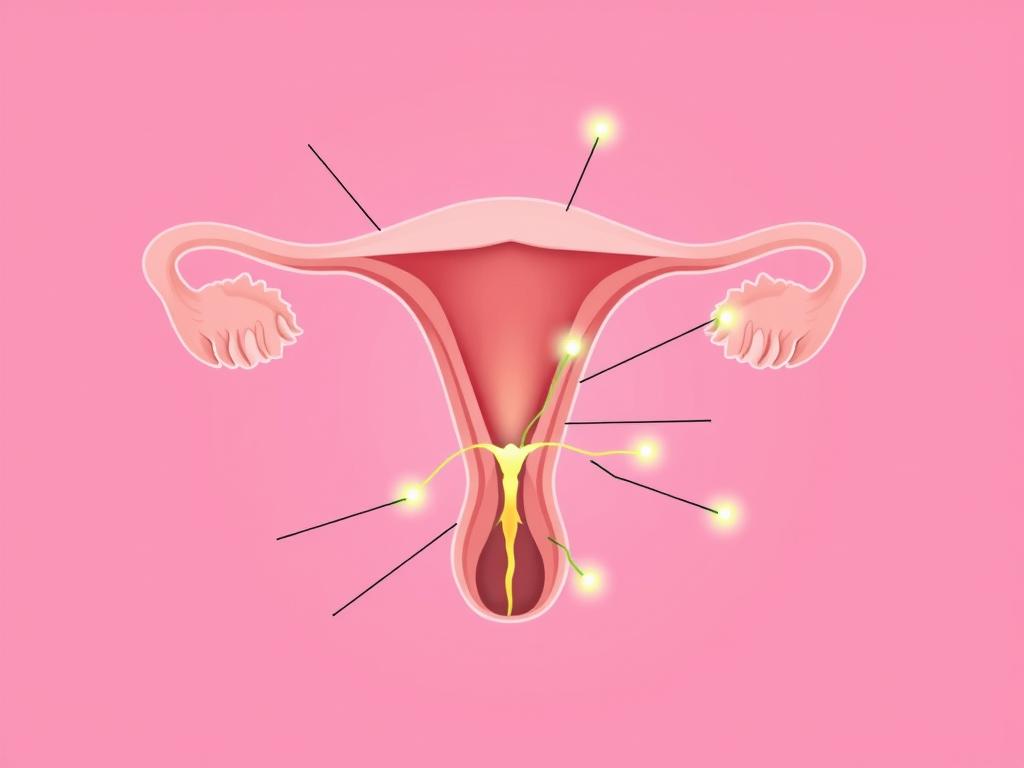What Is Masturbation?
Masturbation is the act of sexually stimulating yourself, most commonly by touching your genitals. It’s sometimes called “solo sex” because it’s something you do on your own. People masturbate for various reasons – for pleasure, stress relief, to explore their bodies, or simply as a form of self-care. The practice is extremely common, with studies suggesting that up to 95% of people have masturbated at some point in their lives.
While masturbation often involves genital stimulation, it can also include touching other sensitive areas of the body, using sex toys, or engaging with erotic content. What’s most important to understand is that masturbation is a normal expression of sexuality that can be part of a healthy sexual life, whether you’re single or in a relationship.
Common Masturbation Methods
Masturbation techniques vary widely based on anatomy, personal preference, and what feels pleasurable to each individual. There is no “right” way to masturbate – what matters is finding what feels good for you in a safe, comfortable manner.
For People with Penises
Common techniques for people with penises include:
- Using hands to stroke the penis shaft with varying pressure, speed, and grip
- Focusing on the frenulum (the sensitive area where the head meets the shaft)
- Incorporating the testicles with gentle touching, cupping, or light pressure
- Stimulating the perineum (the area between the testicles and anus)
- Exploring the prostate through external or internal stimulation
- Varying positions (standing, lying down, sitting) for different sensations
Many people find that using lubricant enhances comfort and sensation during masturbation. Water-based lubricants are generally safe for all types of masturbation and with most sex toys.
For People with Vaginas

Common techniques for people with vaginas include:
- Stimulating the clitoris with circular, up-and-down, or side-to-side motions
- Exploring the labia (inner and outer lips) with gentle rubbing or pressure
- Vaginal penetration with fingers or toys, often combined with clitoral stimulation
- Targeting the G-spot (located on the front wall of the vagina)
- Stimulating the perineum or anal area if desired
- Using different positions like lying on back, stomach, or squatting
Many people with vaginas find that clitoral stimulation is essential for orgasm, while others prefer a combination of internal and external stimulation. Experimenting with different techniques helps discover what works best.
Myths vs. Facts About Masturbation
Common Myths
- Masturbation causes blindness or physical problems
- It leads to infertility or reduced sperm count
- Masturbating too much is physically harmful
- It’s only for single people or those without partners
- It will change the size or appearance of genitals
- Masturbation is immature or something to outgrow
- People in relationships shouldn’t masturbate
Scientific Facts
- Masturbation is physically safe and doesn’t cause health problems
- It has no impact on fertility or reproductive health
- There’s no “normal” frequency – it varies widely between individuals
- People of all relationship statuses masturbate
- It doesn’t change genital size, shape, or appearance
- Masturbation is normal throughout all life stages
- Many people in relationships continue to masturbate
The most important fact to remember is that masturbation is a normal, healthy activity that most people engage in throughout their lives. Any shame or guilt associated with masturbation typically stems from cultural or religious beliefs rather than medical concerns.
Health Benefits of Masturbation
Far from being harmful, research shows that masturbation offers numerous physical and psychological benefits:
Physical Benefits
- Releases tension and can help relieve menstrual cramps
- Improves sleep quality through the release of endorphins
- Strengthens pelvic floor muscles
- May reduce the risk of prostate cancer in men
- Boosts immune function through increased production of certain hormones
- Increases blood circulation throughout the body
Mental & Emotional Benefits
- Reduces stress and anxiety through endorphin release
- Improves mood and can help alleviate mild depression
- Enhances body awareness and self-esteem
- Helps develop understanding of personal pleasure
- Can improve sexual communication with partners
- Provides a safe space to explore fantasies and desires
Regular masturbation can be considered a form of self-care that contributes to overall wellbeing. By understanding your body’s responses and what brings you pleasure, you develop a healthier relationship with your sexuality and yourself.
Sex Toys and Tools for Masturbation
While hands are the most common tools for masturbation, many people enhance their experience with sex toys designed for solo pleasure. These devices can provide different sensations and stimulation that might be difficult to achieve manually.
Common Sex Toys by Anatomy
For People with Penises
- Strokers and sleeves that simulate penetrative sensations
- Prostate massagers for internal stimulation
- Vibrating rings that can be used around the penis
- Handsfree masturbators that use suction, vibration, or automated movement to stimulate without manual effort
- Lubricants specifically formulated for penis stimulation
For People with Vaginas
- Vibrators in various shapes and sizes for external or internal use
- Dildos for penetration and G-spot stimulation
- Suction toys that focus on clitoral stimulation
- Kegel balls for pelvic floor strengthening and pleasure
- Water-based lubricants to enhance comfort and sensation
Sex toys have become increasingly popular for their convenience and unique sensations. These devices use technology like automated stroking, air pulse stimulation, or customizable vibration patterns to create experiences that differ from manual stimulation. For people with mobility limitations or those who want to enhance their masturbation experience, handsfree options can provide new dimensions of pleasure while allowing for relaxation and focus on sensation rather than technique.
Safety Tip: When purchasing sex toys, look for body-safe materials like medical-grade silicone, ABS plastic, or borosilicate glass. Avoid toys made with phthalates or other potentially harmful chemicals. Always clean toys according to manufacturer instructions before and after use.
How Often Do People Masturbate?
One of the most common questions people have is whether their masturbation frequency is “normal.” Research consistently shows there is an extremely wide range of what’s typical:
| Frequency | Percentage of Adults | Notes |
| Multiple times daily | 5-10% | More common in younger adults |
| Daily | 20-30% | Common across age groups |
| Several times weekly | 30-40% | Most commonly reported frequency |
| Weekly or less | 15-25% | Varies widely by life circumstances |
| Rarely or never | 5-15% | May be due to personal preference, low desire, or other factors |
The frequency of masturbation varies based on factors like age, hormone levels, stress, relationship status, and personal preference. There is no “right” amount – what matters is whether your masturbation habits feel healthy to you and don’t interfere with daily life or relationships.
Masturbation becomes problematic only when it interferes with work, responsibilities, or relationships, or causes physical discomfort. If you’re concerned about your frequency, speaking with a healthcare provider or therapist specializing in sexual health can provide guidance.
Safety and Hygiene Practices
While masturbation is generally very safe, following some basic guidelines can prevent discomfort or health issues:
Essential Safety Tips
- Wash your hands before masturbating to prevent introducing bacteria to sensitive areas
- Use appropriate lubricant to prevent friction and irritation
- Clean sex toys before and after use according to manufacturer instructions
- Avoid sharing toys without proper cleaning or covering with condoms
- Trim fingernails to prevent scratches or tears to sensitive tissue
- Listen to your body and stop if you experience pain or discomfort
- Be cautious with household objects that weren’t designed for sexual use
About Lubricants
Different lubricants are appropriate for different situations:
- Water-based: Safe with all toys and condoms, but may dry out quickly
- Silicone-based: Longer-lasting but incompatible with silicone toys
- Oil-based: Very long-lasting but can damage latex condoms and some toys
Always check product compatibility before use, especially with toys.
Important: If you experience persistent pain, unusual discharge, rash, or injury during or after masturbation, consult a healthcare provider. These could indicate an infection, allergic reaction, or injury requiring medical attention.
Masturbation and Relationships
A common misconception is that people in relationships shouldn’t masturbate or that masturbation indicates dissatisfaction with a partner. In reality, masturbation and partnered sex fulfill different needs and can coexist in healthy relationships.
Benefits of Masturbation in Relationships
- Helps partners understand their own bodies and communicate preferences
- Provides sexual outlet when partners have different levels of desire
- Reduces pressure on partners to be the sole source of sexual satisfaction
- Can be incorporated into partnered sex as mutual masturbation
- Maintains sexual health during periods of separation
Open communication about masturbation can strengthen relationships by fostering honesty and reducing shame. Many couples find that discussing masturbation leads to better understanding of each other’s needs and desires.
Masturbation is not a replacement for intimacy with a partner, but rather a complementary aspect of a complete sexual life. Both solo and partnered experiences contribute to sexual wellbeing in different ways.
When to Seek Professional Help
While masturbation is normal and healthy, there are situations where professional guidance may be helpful:
When might masturbation indicate a problem?
Consider seeking help if:
- Masturbation interferes with daily responsibilities, work, or relationships
- You feel unable to control the urge to masturbate
- You experience significant distress, guilt, or shame about masturbation
- Masturbation causes physical pain or injury
- You use masturbation as your primary coping mechanism for stress or negative emotions
What type of professional should I consult?
Depending on your concerns, consider:
- Sex therapist: For concerns about compulsive behavior or sexual function
- Psychologist or counselor: For issues related to guilt, shame, or using masturbation as a coping mechanism
- Healthcare provider: For physical concerns like pain or injury
- Urologist or gynecologist: For specialized care related to sexual organs
Remember that healthcare professionals are trained to discuss sexual health without judgment. Your concerns will be treated with respect and confidentiality.
Embracing Healthy Self-Pleasure
Masturbation is a normal, healthy part of human sexuality that can contribute to physical and emotional wellbeing throughout life. By understanding the facts, practicing safe techniques, and approaching self-pleasure without shame or guilt, you can develop a positive relationship with your body and sexuality.
Whether you masturbate frequently, occasionally, or not at all, what matters most is that your choices feel right for you and support your overall health and happiness. Self-knowledge and self-acceptance are key components of sexual wellbeing, and masturbation can be an important tool for developing both.
Continue Your Sexual Health Education
Learning about your body and sexuality is an ongoing journey. Consider exploring more resources on sexual health, communicating with partners, or consulting with healthcare providers for personalized guidance.



